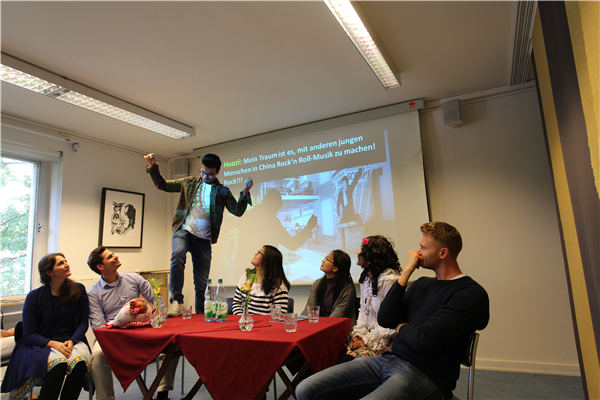Fudan's worldview
By Cao Chen | China Daily | Updated: 2018-10-10 07:25

A Shanghai university is leveraging its international partnerships to help promote human progress at home and abroad.
Last October, Shanghai released its action plan to serve as a pioneer in the implementation of the Belt and Road Initiative. The next month, Fudan University set up the Institute of Belt and Road and Global Governance.
Fudan University, as one of China's top universities, has considered it a major responsibility to serve as a think tank to assist national strategies and facilitate international understanding as it strives to build itself into a world-class institute of excellence, according to the university management.
"We feel obliged to further facilitate international cooperation and communication among colleges, which shall be aimed to promote the development of human societies and serve the national strategies," says university President Xu Ningsheng.
China has embarked on a development trail with no precedent example to follow, according to Jiao Yang, the university's Party chief who serves as the director of the institute, citing the Belt and Road Initiative.
"As there is no existing model to follow, it takes intellectual support from higher education institutions to promote research on the initiative for policy insight and to facilitate high-level think tank exchange for overall, comprehensive and accurate decision-making," she says.
The university has been preparing for the institute's establishment since 2015 when Fudan chaired a think tank alliance for the initiative.
"The institute has continued to bring together experts and groom talent from across the world to discuss policies and matching strategies, forming an international highway for intellectual exchange and information sharing," Jiao says.
This is made possible thanks to Fudan's extensive cooperation with foreign institutes.
Supported by Fudan Development Institute, the university has built research centers for China studies at foreign universities in Latin America, North America and Europe since 2012, such as at University of California in the United States, University of Copenhagen in Denmark and Tecnologico de Monterrey in Mexico.
Xu Xian, director at Fudan-UC Center on Contemporary China, has witnessed the development of the center based at the University of California.
"To build research teams focusing their vision on China in a foreign country is a process requiring great effort, but when everything is done, these overseas centers for China studies will act as a driving force to facilitate academic exchanges and enhance mutual trust between nations," said Xu.
Fudan says it has also launched various exchange programs bringing foreign scholars from across the world to get a better understanding of China.
Geeta Kochhar, a visiting scholar from India, arrived at the university in May on a visiting scholar program sponsored by Fudan.
She set off the program with a round-table discussion on Sino-Indian relations, from which she sensed a strong interest in the attitude toward the Belt and Road Initiative among Chinese scholars based in India.
























